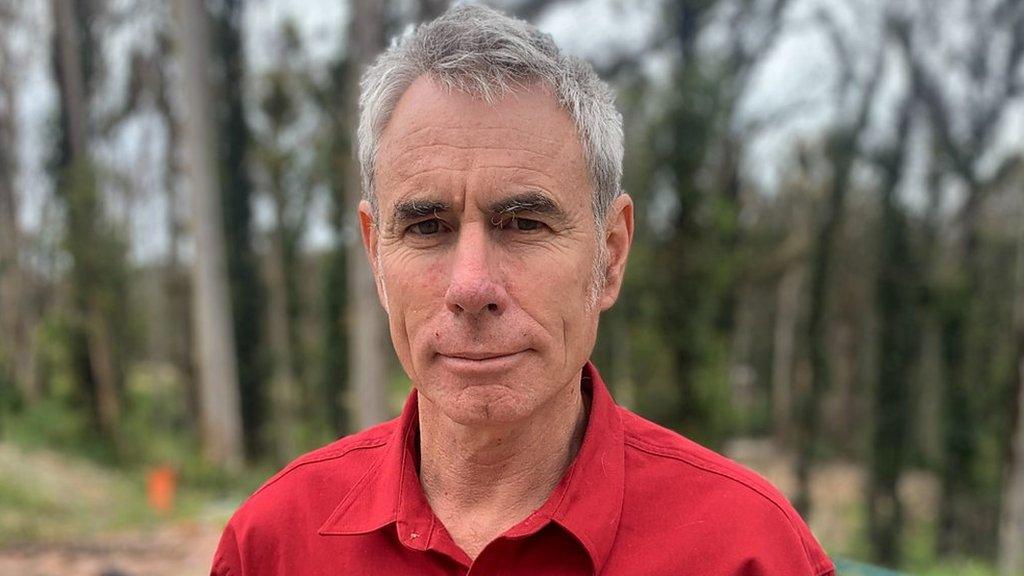Perth: Bushfire threatens locked-down Australian city
- Published
Helicopter footage showed some the bushfire's trail of destruction
A bushfire raging outside the Western Australian city of Perth has forced nearby residents to evacuate, as the city remains in a coronavirus lockdown.
At least 59 homes have been destroyed by the blaze, which has been fanned by strong winds. Officials say six firefighters have had minor injuries.
People have been told to flee to safety even if it means breaking lockdown.
But as more than 200 firefighters battled the blaze, some residents were warned that it was too late to leave.
People living in areas where it was deemed too dangerous to evacuate were told to "shelter in a room away from the fire front and make sure you can easily escape."
Others in affected areas were urged to flee for safety as soon as possible.
"Whether you are in lockdown or have been personally directed to quarantine for Covid-19, you must do whatever you need to do to keep yourself and your loved ones safe," the Department of Fire and Emergency Services (DFES) said.
Western Australian (WA) Premier Mark McGowan earlier said the state was facing an "extremely concerning and serious" situation.
"Right now WA is battling two different kinds of emergencies - a dangerous fire emergency and a Covid-19 lockdown emergency," he said.
He urged the majority of the state capital's residents - not in harm's way of the fire - to remain in their homes to reduce the risk of the virus spreading.
By global standards, it is a very low risk as the city has reported just one local case. But the city of two million people entered a snap five-day lockdown on Sunday after that case - the first local infection in Western Australia in 10 months - was found.
What is happening with the fire?
The fire near the town of Wooroloo was first reported at midday on Monday. It has grown into a fast-moving, erratic blaze which overnight raced through the hills and valleys fringing the city's north-east.
Perth residents woke up on Tuesday to a blanket of smoke across the city. People reported ash falling from the sky in locations 50km (31 miles) away from the fire-front.
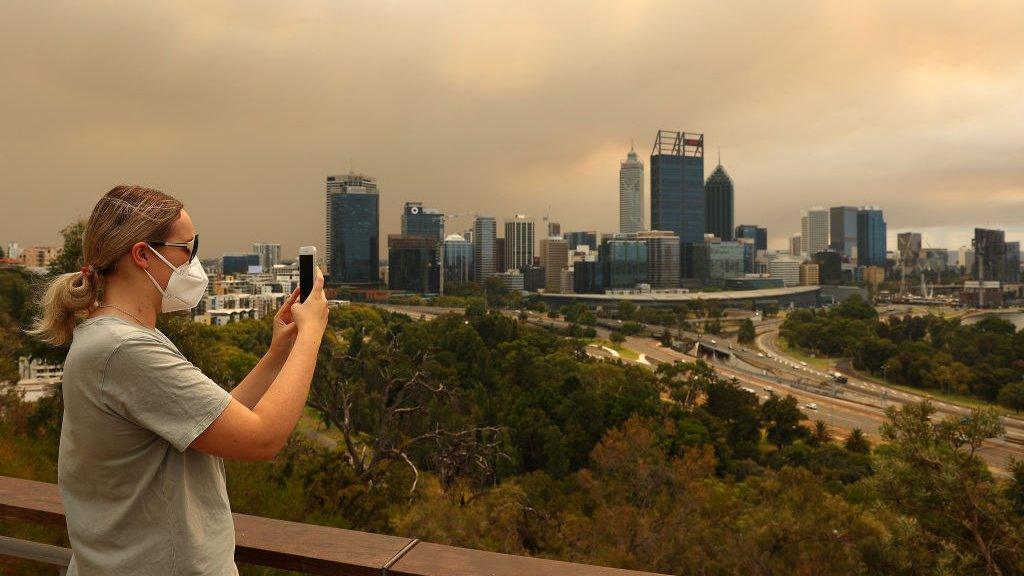
The city of Perth is blanketed in smoke
Fire authorities told people living in the north-east semi-rural suburbs - including Ellenbrook, Averley and Brigadoon - that they were in "immediate danger" and needed to evacuate or enact their bushfire survival plans.
Those in areas further afield have been told "the best option is to leave early and to leave now".
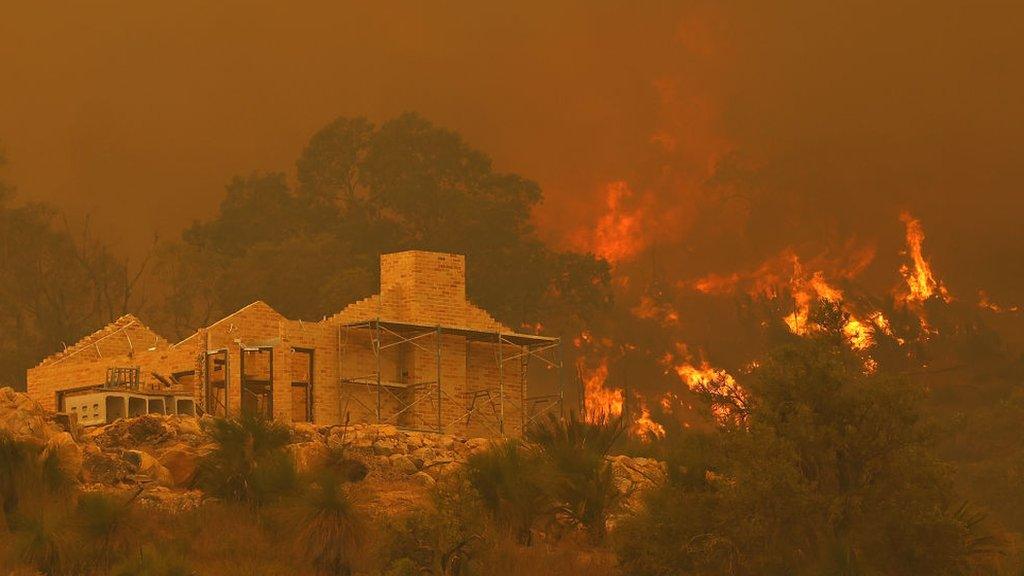
Flames were seen surrounding a house under construction in the suburb of Swan
Perth is enduring 35C (95F) temperatures and has experienced a run of hot days as well as extended dry conditions.
Western Australia deputy fire commissioner Craig Waters said historically the area had not seen such large fires but "in the last few years, we have seen increased fire behaviour with rapid escalation overnight".
"The changing climate... and moisture deficit in the soil is impacting how the fire behaves," he said.
Hell to high water: Australia’s summer of extremes in 2019-20
He said back-up had been requested from the fire services of eastern Australian states - where bushfires are traditionally more common.
What about the virus?
Deputy commissioner Waters told those quarantining in fire-threatened zones to "use common sense" and "do whatever they need to do to look after their own safety and the safety of their loved ones".
"If they have to go to an evacuation centre, that is fine too," he said.
In Swan, an affected fire region, authorities said dozens of locals had evacuated to other people's homes "rather than go into a large crowd" at an evacuation centre.
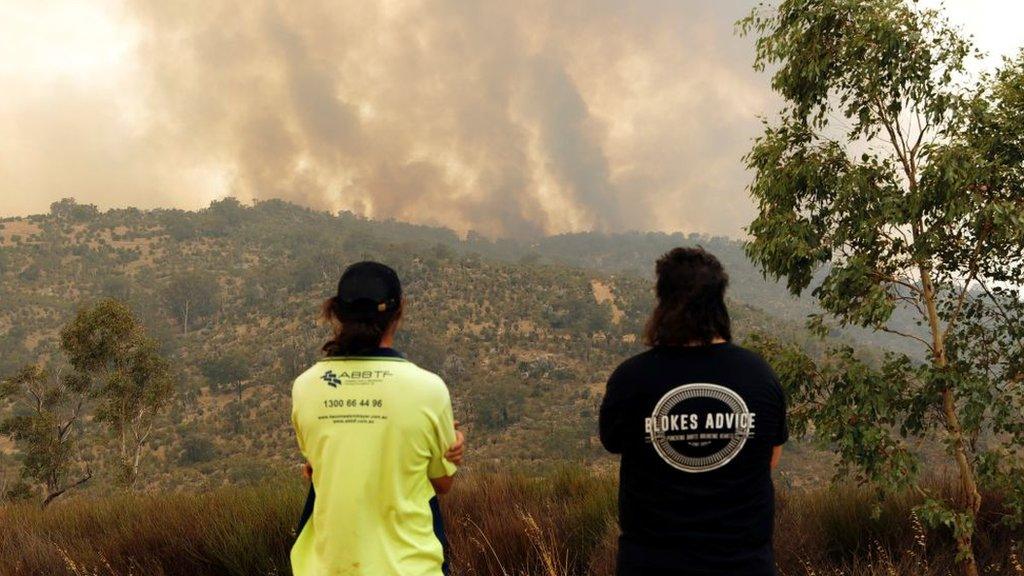
Residents watched as fire engulfed a ridge in the suburb of Brigadoon
Western Australia reported no new local infections on Tuesday beyond the initial case. But authorities said they had tracked down 151 close contacts of the infected person, a man in his 20s who worked as a hotel quarantine guard and also as a ride-share driver.
Australian states, particularly in recent months, have taken swift, aggressive measures to cut off outbreaks after community spread in Melbourne in July triggered the nation's so-called second wave.
Australia has recorded nearly 29,000 cases and 909 deaths since the pandemic began. For a population of about 25 million it is far fewer than many other countries.
- Published31 January 2021
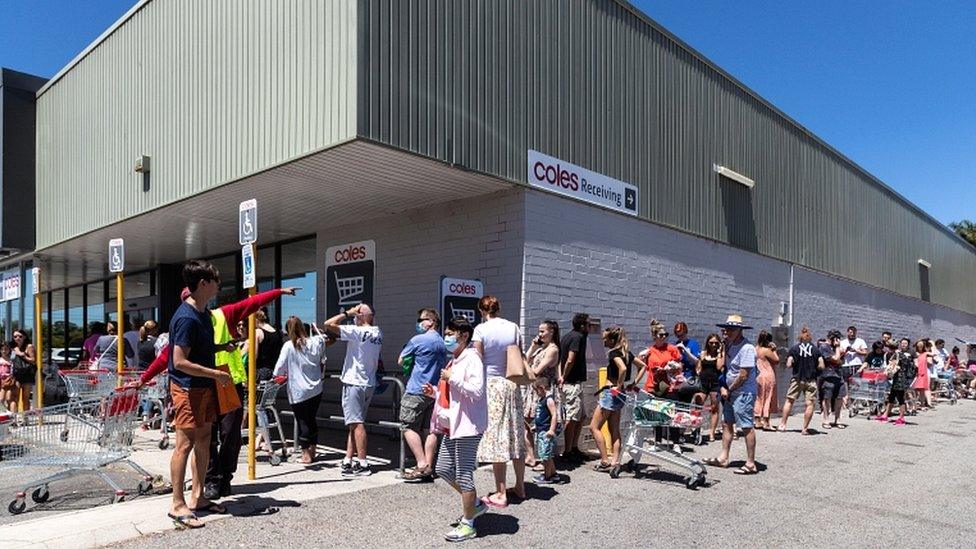
- Published8 January 2021
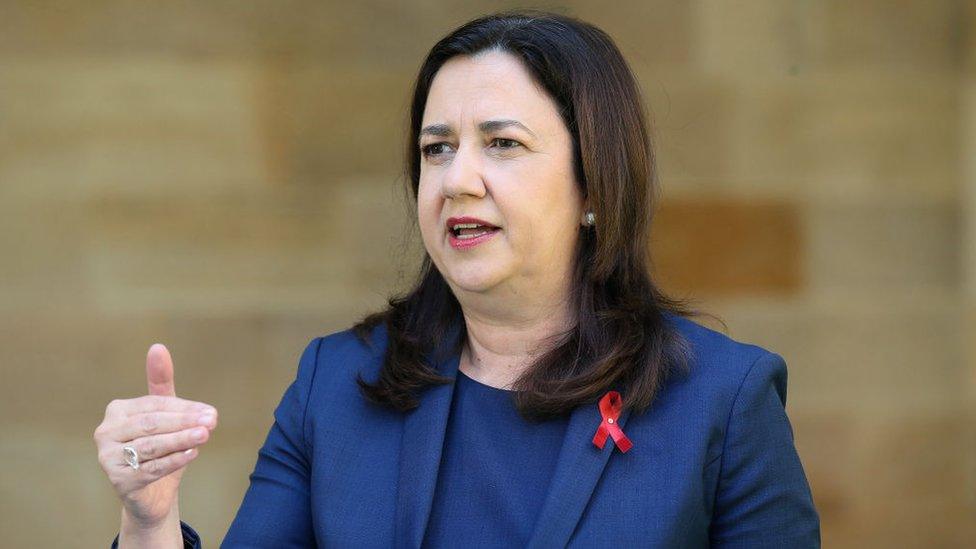
- Published8 January 2021
